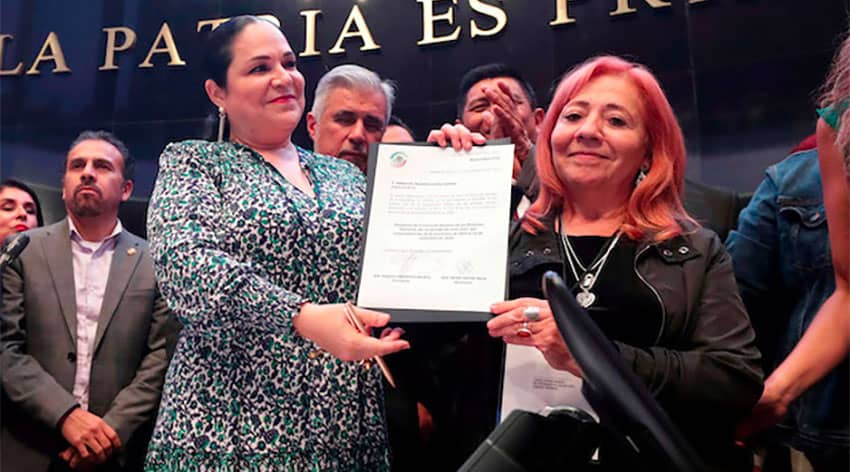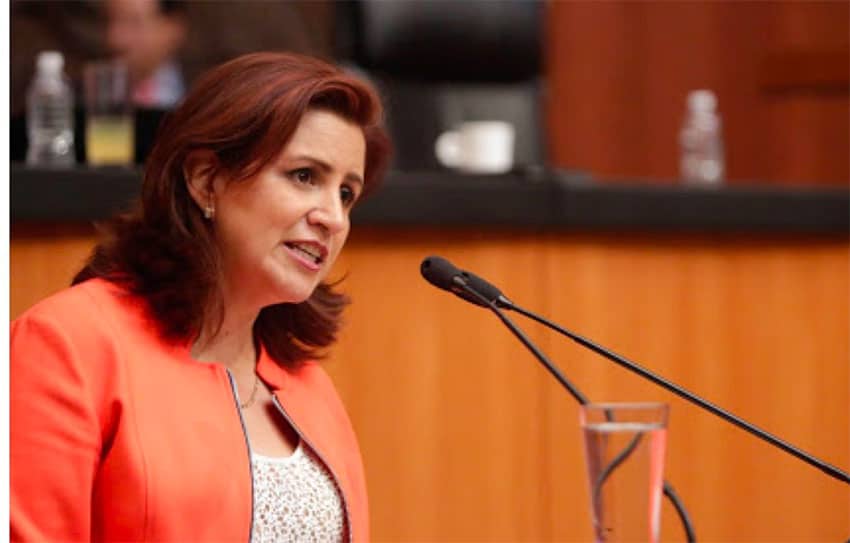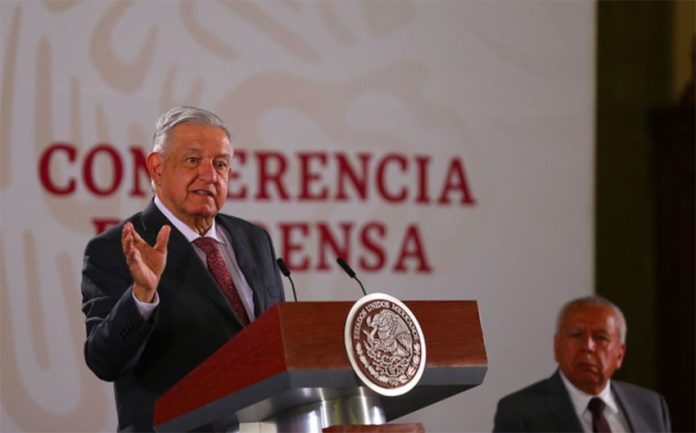President López Obrador has governed with little political opposition in his first year in office, allowing him to engage in a gradual molding of Mexico’s institutions to his liking.
López Obrador and a coalition led by the party he founded, Morena, won a landslide victory in the July 2018 elections, leaving older, more established political parties weak and in disarray. Their condition has changed little since.
They have struggled to recover and form a cohesive opposition that provides an authentic counterweight to the policies the president and Morena are implementing to achieve the so-called “fourth transformation” of Mexico.
The Institutional Revolution Party, or PRI – Mexico’s omnipotent political force through much of the 20th century – went through a bitter and sometimes hostile process to elect a new national leader and general secretary as part of renewal in the wake of its crushing defeat last year.
As a result, a lot of the PRI’s focus has been inward rather than on López Obrador and Morena.

Many of its most prominent members, such as former interior secretary and current Senator Miguel Ángel Osorio Chong and ex-foreign affairs secretary Luis Videgaray, have not been particularly vocal against the government’s policies and agenda.
The conservative National Action Party, or PAN – the second largest party in terms of seats in Congress – has also struggled to shape itself into a strong opposition.
One factor might have been the death of Rafael Moreno Valle – who was the party’s leader in the upper house – in a helicopter accident last December. The loss of Moreno caused the PAN to “lose its way” as the main opposition force, the newspaper Milenio said.
The PAN has managed to stop or negotiate some legislative proposals introduced by Morena but most of the time the ruling party has got its way.
The right-leaning party also lost one of its two past presidents of Mexico when Felipe Calderón jumped ship after his wife, Margarita Zavala, failed to win the nomination to be its presidential candidate in last year’s elections.
The power couple have created their own political movement, México Libre, and have attracted some PAN members to their cause but the organization was unable to attract enough prospective followers to create a quorum at its last two meetings.
Other smaller opposition parties, such as the Democratic Revolution Party (PRD) and the Citizens’ Movement (MC) have only a very small number of lawmakers in both houses of Congress, meaning that their capacity to oppose the government’s agenda is extremely limited – at least on their own.
Together, however, senators from all four do have the capacity to block proposals that require a two-thirds majority for approval.
One such opportunity presented itself this month when the Senate was asked to confirm the appointment of an activist, Morena party member and longtime ally of López Obrador as the new head of the National Human Rights Commission (CNDH).
If senators of the four parties had voted as a bloc, the Morena-led coalition would have fallen at least eight votes short of the two-thirds majority required to install Rosario Piedra Ibarra who, according to many opposition lawmakers, is unsuitable for a role that monitors the government for abuse because of her proximity to the president and her admiration for him.
However, some opposition lawmakers supported Piedra’s appointment in the secret ballot and her appointment was confirmed by a single vote.
Many opposition lawmakers and government critics saw her elevation to CNDH chief as yet another example of López Obrador’s efforts to bring more government agencies – even supposedly autonomous ones such as the rights commission – under his control.

“The administration’s appointments since taking office show a desire to diminish independent institutions, to sap them of their importance by putting them in the hands of people who are very close to the government or who are unqualified for the job,” Citizens’ Movement congresswoman Martha Tagle told the magazine Americas Quarterly.
In his first year in office, AQ noted, López Obrador has also appointed the wife of a close personal adviser to the Supreme Court, dismissed the head of an agency that evaluates social policy after the technocrat penned an opinion piece critical of the government’s budget cuts and pushed through appointments of allies to two energy regulatory agencies even though they apparently lacked the technical experience required for the roles.
In addition, Morena has presented proposals to reform the National Electoral Institute which could give presidential appointees more control over the agency and the way in which future elections are run.
The recent resignation of Supreme Court justice Eduardo Medina Mora amid allegations of corruption means that López Obrador will have the opportunity to name four of the 11 sitting judges by 2021. His four nominees will be able to block some constitutional challenges that need eight votes to be upheld.
Attempts by presidents to exert influence over institutions are not new but López Obrador – who has promised to transform Mexico and end corruption and cronyism – has “repeated old patterns, perhaps with less concern for appearances,” Rodolfo de la Torre, director of the Mexico City-based think tank CEEY, told AQ.
The disorganized and fractured opposition parties have shown themselves to be incapable of putting the brakes on the president and his agenda whose apparent aim is to increase his executive power.
Tagle, the MC lawmaker, said that building an alternative agenda for Mexico is difficult because of the prevalent political polarization in the country.
“Right now our political discourse is all or nothing, for or against,” she said.
“There’s no allowance for intermediate positions, or for being critical without being considered ‘against’ the government . . . A constructive opposition agenda is hard to build on that kind of polarization.”
Source: Milenio (sp), Americas Quarterly (en)
